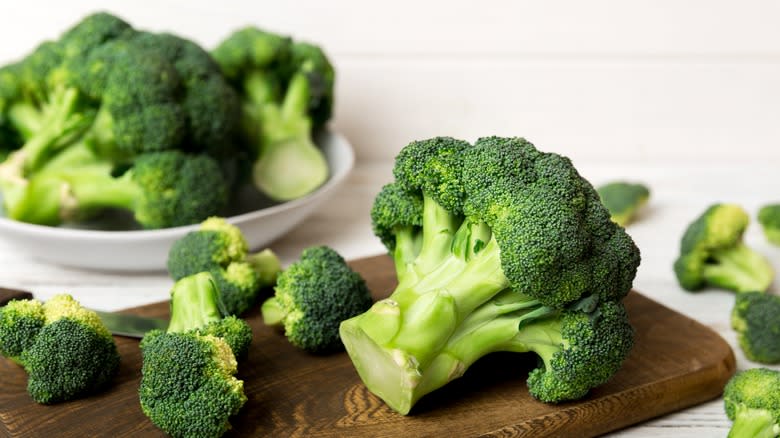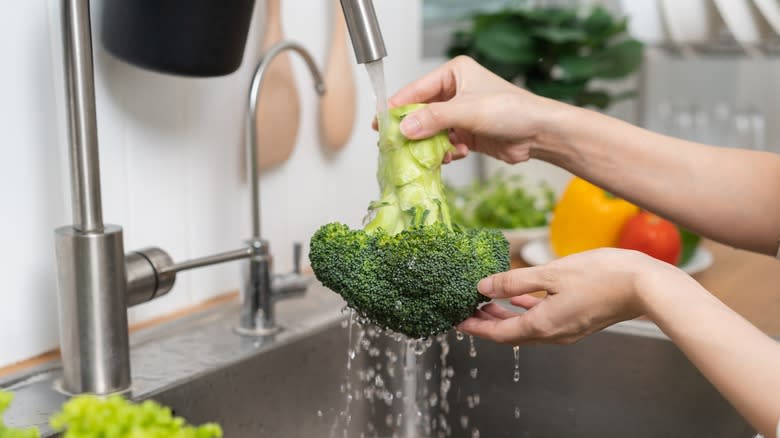The Absolute Best Way To Clean Fresh Broccoli

Broccoli is a go-to veggie when it comes to getting something green on the dinner plate. But whether you are making a crispy smashed broccoli, an easy broccoli pesto, or a velvety soy chicken and broccoli, there is one absolute truth, and that is you want to start with a clean head of this cruciferous vegetable. The best way to ensure your broccoli is clean involves rinsing it thoroughly under running water, then submerging it in a bowl of clean cold or warm water, and letting it have a nice long two-minute soak. Make certain you place the broccoli with the stalk sticking straight up and the florets underwater.
If you prefer, you can chop up your broccoli before you soak it. This will make it easier to handle; however, the FDA does recommend rinsing your veggies before you peel or make any incisions. This guideline is to help ensure dirt and bacteria are not transferred by the knife in the process.
Read more: 13 Simple Tricks To Pick The Best Fresh Fruit Every Time
Dry Your Broccoli To Avoid Spoilage

Once your two-minute timer goes off, dump the broccoli into a colander, and let the soaking water run off. Give your broccoli another good rinse after its bath, again, holding it by its stalk with the florets face down, and then allow it to drain until it is no longer raining from your colander. Easy, right? But before you use it or store it, there's more thing you need to do. Dry it.
To dry your broccoli, you can place it in your salad spinner or use a towel to blot it dry. While it is best to wash your veggies right before you plan on using them, sometimes that's not necessarily convenient. So if you do wash your broccoli ahead of time, you will want to make certain it is free of any excess moisture before you store it in the fridge for future noshing; otherwise, it will be susceptible to growing mold or bacteria.
Read the original article on Tasting Table